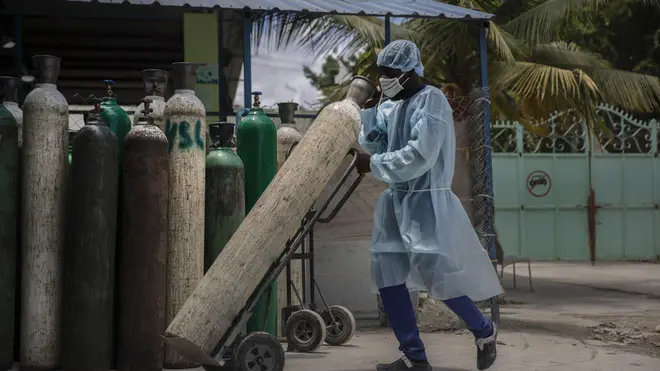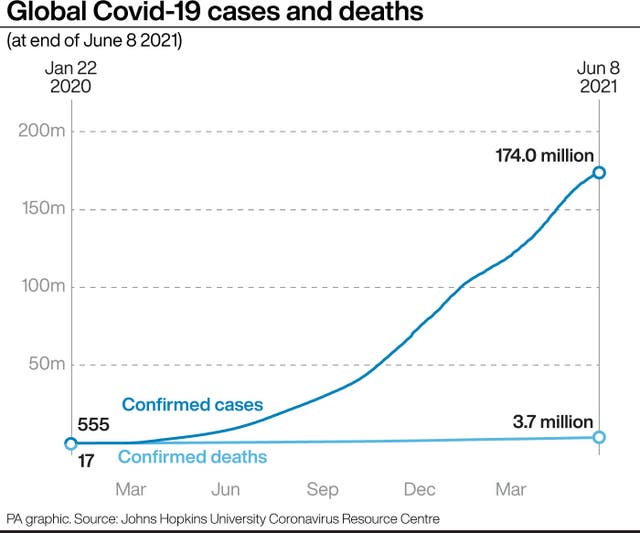
Jim Diamond 1am - 4am
9 June 2021, 17:14

The country is dealing with the largest rise in cases since the start of the pandemic.
Haiti is trying to deal with a rise in coronavirus infections at a time when vaccinations have not yet arrived in the country.
The few hospitals treating Covid cases have been so swamped in recent days that they report turning away patients, while plans to open another hospital to treat the infected have been delayed.
Official figures remain relatively low for a nation of more than 11 million people: Just 2,271 cases and 62 deaths have been recorded over the past month in government data collected by Johns Hopkins University.
A total of 15,700 cases and more than 330 deaths have been reported since early last year.
But experts are united in saying those figures miss the true scale of what they say is the largest spike in cases since the new coronavirus first landed.
The government declared a health emergency on May 24 and imposed a curfew and safety measures though few Haitians appear to be following them.

Most shun, or cannot afford, face masks and it is nearly impossible to keep a distance while shopping in bustling marketplaces or riding the crowded, colourful buses known as tap taps that most Haitians rely on to get around.
“There is no time to waste,” said Carissa Etienne, director of the Pan American Health Organisation, which is working with the government to scale up testing to identify and isolate infected people, a difficult task in a place where few think they can afford to be sick.
Sanorah Valcourt, a 27-year-old mother and hairstylist, said she felt sick for for two weeks last month with a fever and symptoms including loss of taste.
But she did not get tested, or even take measures such as wearing face masks she finds uncomfortable.
“I didn’t feel well enough to hop on a tap tap and spend hours at a hospital to get tested,” she said.

The lack of cases early this year had led authorities to reduce the number of beds available for Covid patients to about 200, more than half of those at the non-profit St Luke Foundation for Haiti in the capital of Port-au-Prince.
But by early this month, that clinic was at capacity and announced it was turning away patients.
“Many people are dying on arrival in ambulances,” the foundation said.
“We have received many nuns as patients, a sure sign (Covid-19) is in the poorest areas.”
Marc Edson Augustin, medical director of the St Luke hospital, said he is especially worried about the deaths he has seen among those aged 17 to 22, and that groups of up to seven people are showing up at the same time seeking treatment for Covid.
“The situation is real, and we want to tell people that the situation is getting worse,” he said.
“We’re working to keep people alive as much as possible.”
Haiti’s health ministry had planned to have another 150 beds elsewhere for Covid-19 patients, but that effort was delayed.

Meanwhile, Bruno Maes, representative in Haiti for Unicef, said the children’s agency is working to help hospitals get oxygen and fuel.
“It’s not enough, for sure,” he said.
“We have to be ready for a bigger influx of cases. …It could get out of control.”
So far, Haiti has not received a single vaccine, though officials say they expect to get 130,000 AstraZeneca doses this month.
The US government also said it would donate a portion of six million doses for Haiti, though officials have not specified how many or when they will arrive.
Some 756,000 doses of AstraZeneca shots had been slated to arrive in May via the United Nations’ Covax programme for low-income countries, but they were delayed due to the government’s concern over possible clotting as a side effect and a lack of infrastructure to keep the vaccines properly refrigerated.